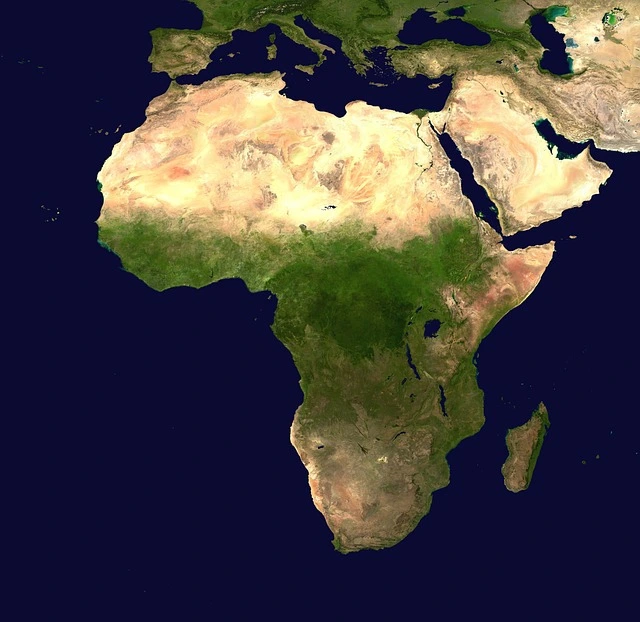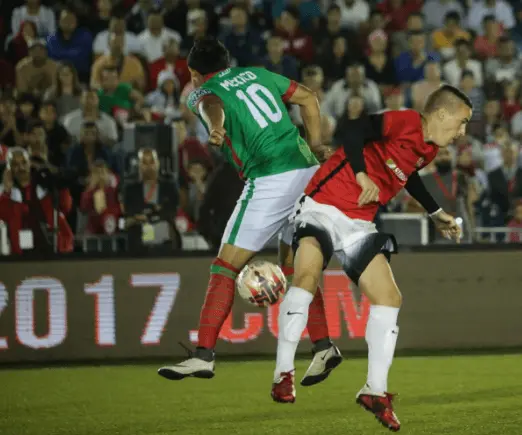UEFA Futsal World Cup Qualifications
Futsal Fever Grips Europe: UEFA Futsal World Cup Qualifications
Move over football fans, because futsal is here to steal the spotlight! Across Europe, the fast-paced game’s faster-paced, indoor cousin is heating up, with all eyes set on the biggest stage – the 2024 FIFA Futsal World Cup in Uzbekistan. Buckle up, because the battle for European glory is packed with drama, rising stars, and enough skill to keep you glued to your seats.
The UEFA Futsal World Cup is a highly anticipated international tournament that showcases the best futsal teams from around the globe. With teams competing for the prestigious title, the road to qualification is both challenging and exciting. Let’s take a closer look at the UEFA Futsal World Cup qualifications, the qualifying format, and the teams vying for a spot in the tournament.
The FIFA Futsal World Cup: A Brief Overview
What is the FIFA Futsal World Cup? While not the only international Futsal competition spanning all continents, the FIFA Futsal World Cup is definitely given the most authenticity by the sheer number of people eager to play and watch it. First held in 1989, the tournament has grown in popularity, attracting futsal enthusiasts from all corners of the world. The previous edition, held in 2021, saw Portugal emerge as the champions, defeating Argentina in the thrilling final.
Qualifying for the UEFA Futsal World Cup
Qualifying for the UEFA Futsal World Cup is no easy feat. The tournament features a total of 24 teams, with one country qualifying automatically as the host and the remaining 23 teams earning their spot through continental competitions and qualifying tournaments. The qualification process differs based on the continents, with European teams going through a unique qualifying tournament.
European Qualifications: The Elite Round and Playoffs
For European teams, the path to the Futsal World Cup begins with the Elite Round. Played between September and December 2023, the Elite Round features the top 20 remaining European teams divided into five groups of four. The winners of each group secure their place in the World Cup, while the four best-ranked second-placed teams enter the playoffs.
The Elite Round playoffs, scheduled for April 8th to 17th, 2024, determine the final European teams to qualify for the tournament. The four teams compete in two ties, with the winners advancing to the Futsal World Cup.
Other Continental Qualifications
Teams from other continents, including Asia, Africa, North America, South America, and Oceania, qualify for the Futsal World Cup through their respective continental championships. The number of qualifying spots allocated to each continent varies, with UEFA being allotted the most spots due to the strong futsal tradition in Europe. Check out which African countries made it to the Futsal World Cup.
The UEFA Futsal World Cup Qualification Format
Let’s take a closer look at the various stages involved in the UEFA Futsal World Cup qualification.
Preliminary Round
The qualification process kicks off with the Preliminary Round, where the teams with the lowest coefficients enter the competition. These teams compete in mini-tournaments, with the winners advancing to the next round.
France and Kazakhstan: The New Kids on the Block
The qualifying rounds for the World Cup involved 20 teams divided into groups across Europe. While some groups were predictable, with established powerhouses like Portugal and Spain dominating as expected, the competition wasn’t without its surprises. France and Kazakhstan, determined to show their prowess, secured their first-ever World Cup appearances, sending shockwaves through the futsal world.
Main Round
The Main Round is the next stage of the qualification process for European teams. The remaining teams, excluding those from the Preliminary Round, compete in home and away groups. The group winners and the best runners-up progress to the Elite Round, while the remaining runners-up enter the Main Round playoffs.
Elite Round
The Elite Round is the penultimate stage of the UEFA Futsal World Cup qualification. This is where the competition starts looking tough and highly entertaining for the fans. The top 20 remaining European teams, including the group winners from the Main Round and the best-ranked second-placed teams, compete in home and away groups. The group winners secure their place in the Futsal World Cup, while the four best-ranked second-placed teams enter the playoffs.
Elite Round Playoffs
The playoffs are the final stage of the qualification process for European teams. The four best-ranked second-placed teams from the Elite Round compete in two ties, with the winners earning their ticket to the Futsal World Cup. This year’s playoffs will be held in April.
European Teams in the UEFA Futsal World Cup
Europe is well-represented in the FIFA Futsal World Cup, with a total of seven teams qualifying for the tournament. The teams that have already secured their place in the 2024 edition are France, Kazakhstan, Portugal, Spain, and Ukraine. Two more teams will join them after the playoffs.
France and Kazakhstan: The New Kids on the Block
The qualifying rounds for the World Cup involved 20 teams divided into 10 groups across Europe. While some groups were predictable, with established powerhouses like Portugal and Spain dominating as expected, the competition wasn’t without its surprises. France and Kazakhstan, determined to show their prowess, secured their first-ever World Cup appearances, sending shockwaves through the futsal world.
France: Les Bleus, already renowned for their brilliant performances and tactical finesse on the outdoor soccer pitch, are translating those skills onto the futsal court. With a squad boasting experienced veterans like Kylian Mbappé, France is a force to be reckoned with. Their dynamic play and unpredictable tactics are sure to keep opponents on their toes.
Kazakhstan: There’s a new Kazakh sensation in town! The Central Asian nation surprised everyone by dominating their group and booking their ticket to Uzbekistan.
The Kazakhs plays with an attacking flair, peppering opponents’ goals with audacious shots and lightning-fast counter-attacks. Can they continue with their bold moves on the world stage?
The Usual Suspects: Portugal, Spain, and the Fight for Gold
Of course, with 20 teams vying for a limited number of spots, not everyone could qualify. Italy, a perennial contender, missed out on the World Cup for the first time since 2012, leaving fans heartbroken and frustrated.
However, the European scene wouldn’t be complete without the familiar faces. The reigning World Champions, Spain, are back with a vengeance. Their tiki-taka style of futsal, with its quick passing and intricate combinations, is a thoroughly entertaining spectacle, with many re-plays needed sometimes to follow the ball. With legendary players still pulling the strings in the field, Spain remains a team to beat.
Portugal, never one to shy away from a challenge, is also in the mix. Their possession-based approach, built on exceptional individual skill and tactical nous, makes them a nightmare for any opponent. Keep an eye out for the ever-dangerous midfielders, whose lightning-fast dribbling and clinical finishes are enough to keep the goalkeepers constantly on their feet (which they already probably are tbh, it IS futsal).
The Road to Glory
While France, Kazakhstan, and the usual suspects stole the headlines, the qualifying journey wasn’t without its fair share of drama. The Netherlands staged a dramatic comeback in the playoffs, securing their place in Uzbekistan. Those were amazing matches with lots of crazy action. And that’s exactly the kind of thing that we love watching. That’s what makes any game – in this case, the frantic futsal game – so captivating. You never know when someone new will surprise you and upset the whole expectation bucket.
Beyond the Pitch: Futsal’s Growing Footprint in Europe
The World Cup isn’t just about crowning a champion; it’s about the wider impact futsal has on the continent. From grassroots initiatives sparking a passion for the sport in young players to community outreach programs promoting inclusivity and social change, the positive effects of futsal are undeniable.
Initiatives like the UEFA Under-19 Futsal Championship are good for nurturing future stars, providing a platform for young talent to develop their skills.
Futsal’s accessibility and smaller playing surface make it ideal for smaller communities and individuals with limited resources. With fewer players and equipment requirements, it opens doors for wider participation, fostering a sense of belonging and promoting social inclusion.
The Buzz is Building as Europe Gears Up for Uzbekistan
As the excitement for the World Cup intensifies, European teams are sharpening their skills and preparing for the intensity of the global stage. With France and Kazakhstan ready to upset the balance, established favorites like Portugal and Spain hungry for glory, and the entire continent buzzing with anticipation, one thing’s for sure: the 2024 Futsal World Cup promises to be an unforgettable spectacle. So, grab your virtual tickets, unfurl your national flags, and get ready to witness the best of the best battle it out for futsal supremacy!
It’s worth noting that only seven out of the 50 participating European teams will make it to the World Cup finals in Uzbekistan. These seven teams will join 17 others from other continents to compete for the coveted title.



